Project Description
We have decided to bring together a team of wildlife trade researchers and the Conservation Optimism team to provide evidence-based and hopeful stories during the current pandemic. Produced in collaboration with young people, this content aims to both inform and empower!
Eco-Anxiety with Caroline Hickman – Podcast Episode
Ever felt anxious or depressed about the future of the planet? This psychological state actually has a name, eco-anxiety, and is quite widespread! What many people don’t know, however, is that this is an emotionally healthy response. We interviewed climate psychiatrist Caroline Hickman to learn more about eco-anxiety and to find out how to turn this sometimes paralysing feeling into a tool to move forward. Full transcript available here.
Saving species with Carl Jones – Podcast Episode
As a young Welsh boy, Carl Jones was told by his headmaster that he wasn’t rich or clever enough to be a conservationist. Since then, Carl has become known as someone who saved various species in Mauritius and has been a conservationist for over 50 years! On this episode, we discover that saving a species is not that straightforward as Carl discusses the challenges he faced along the way and we get a glimpse of his vision for the future of nature.
Resetting our relationship with nature – Blogs
Wondering if it might be time to reset our relationship with nature following the COVID-19 pandemic? You’re not the only one! Alegria Olmedo, a PhD student from the University of Oxford and the Co-Founder of the organisation People for Pangolins shares with us her perspective on why she believes it is time for us to hit the reset button and the role that young people have to play in this transition. Find out what pangolins can teach us about a post-COVID19 future here.
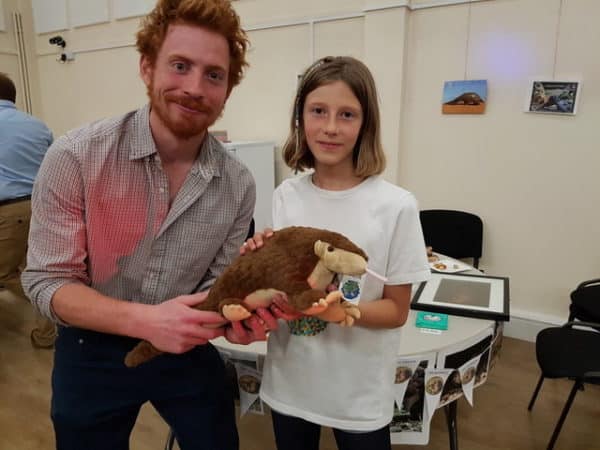
Elliot Newton, the co-founder of People for Pangolins with a super-enthusiastic pangolin-lover, Ellie, who organised a Pango-Gin event.
Do you remember some of your encounters with the natural world that particularly affected you? In response to Alegria’s blog, Caroline Hickman shares with us how her experience in the marine world shaped her work as an academic and psychotherapist. She reminds us of the psychological importance of remembering that we are part of nature and suggests that it might be time for us to rewild a part of our own psyche. Read the full blog to discover what dolphins can teach us about optimism here.
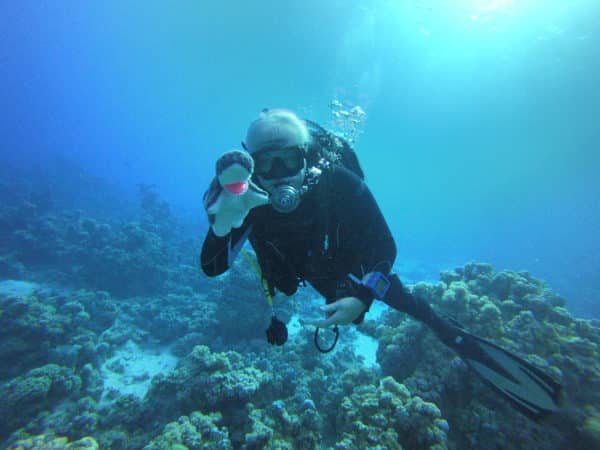
Diving played an important role in Caroline’s life.
The COVID-19 pandemic impacted people around the world in different ways but a common strategy put in place by various countries was to put their inhabitants under lockdown. Being suddenly stuck inside and allowed out only for limited amounts of time somehow seem to have made people more aware of the important benefits of spending time in nature.
At a time of intense hardship and stress, being able to escape for a bit and enjoy nature ended up being a source of joy and happiness and many took up new nature-related hobbies such as jogging or bird-watching. We asked biology students from the University of Oxford to share their experience of nature during lockdown and a common thread emerged: turns out that spending time in nature or even just watching nature is a powerful tool for our wellbeing! Read their testimonies here.
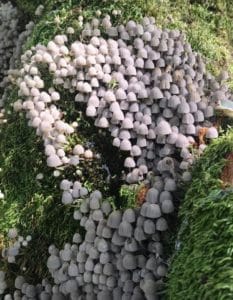
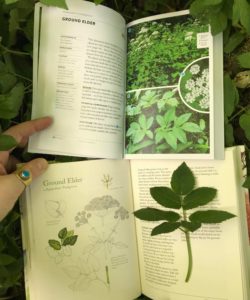
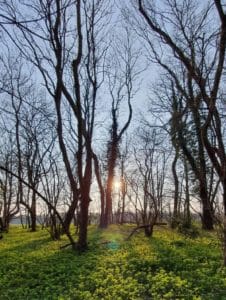
We also asked the Conservation Optimism community to share with us their most memorable encounters with wildlife. You can find some of the stories we received here!
Empowering conservation with Megan Cromp – Podcast Episode
Want to protect the planet but not sure where to start? Megan Cromp is a conservationist turned tech entrepreneur who is working on an app, Key Conservation, to empower people to act for nature! In this episode, Megan tells us about her transition from a field biologist to an app-creator and explains how Key Conservation will allow people to donate their skills or help conservation organisations easily and in real-time.
COVID-19 and wildlife trade – FAQ
Wondering what the links between COVID-19 and the wildlife trade are? This FAQ was developed in partnership with researchers from the Interdisciplinary Centre for Conservation Science, the Oxford Martin Programme on the Illegal Wildlife Trade and the Conservation Evidence at the Conservation Science Group to answer key questions. Find out more here.
Wildlife Trade: Your Round the World Trip in 16 Species – Infographic
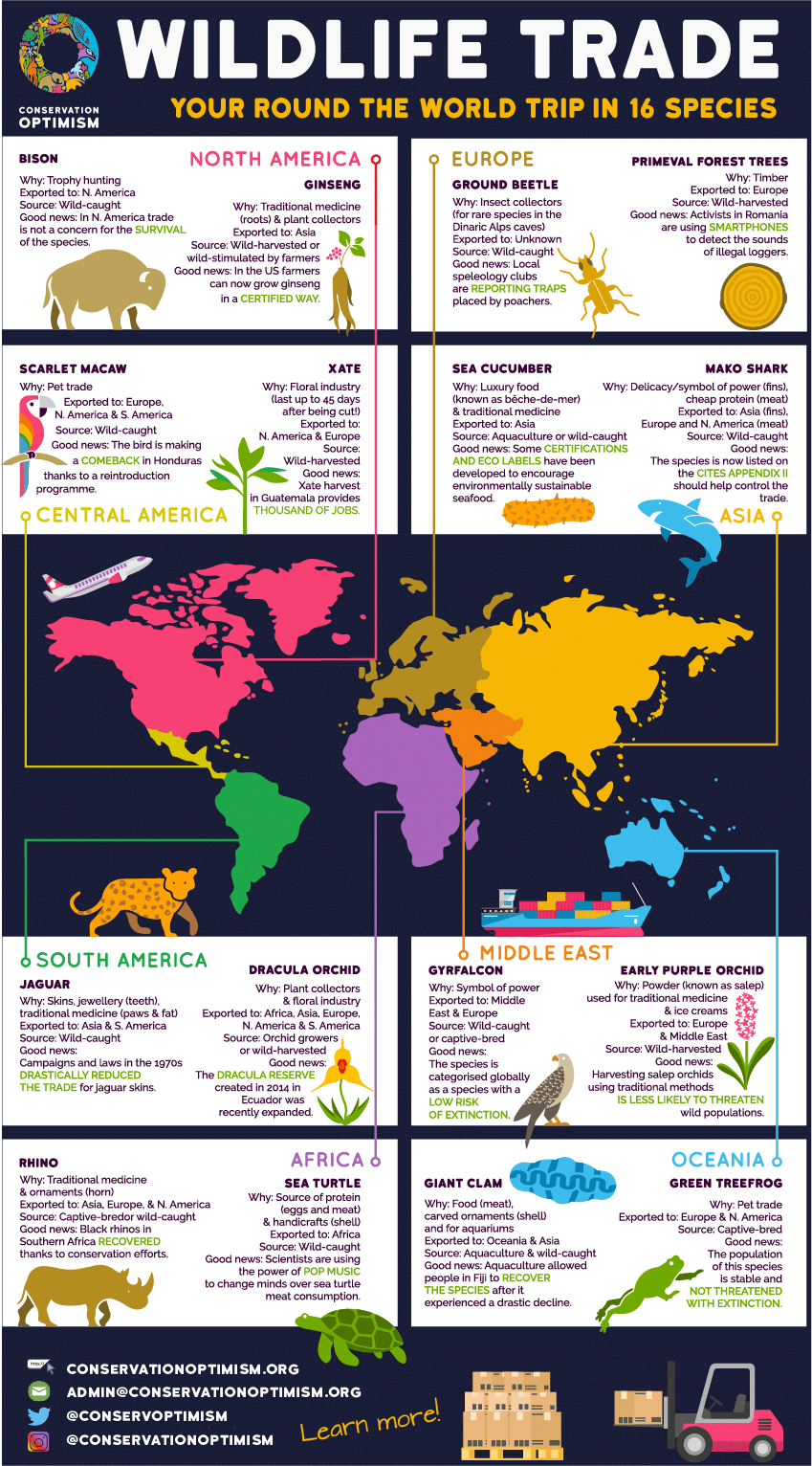
These resources arise from activities funded by the Higher Education Innovation Fund and ESRC Impact Acceleration Account through the University of Oxford’s COVID-19: Economic, Social, Cultural, & Environmental Impacts – Urgent Response Fund.
